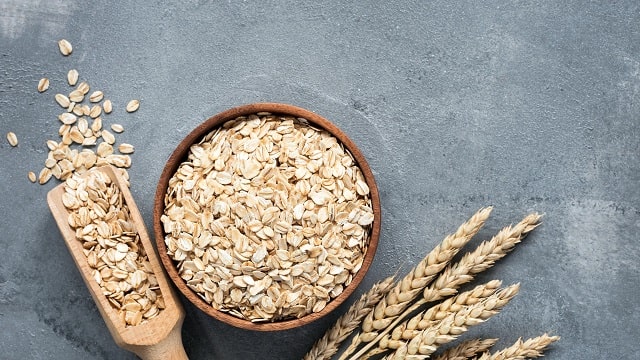Oats are one of the most consumed cereals, but do they contain gluten? We are looking for the answer to this question, especially interesting for people with celiac disease.
Something as simple as a bowl of oatmeal could trigger a series of quite complicated questions, at first glance. For example, does it contain gluten? Is it safe for people with celiac disease? They are not meaningless questions. Oats are known for being a gluten-free cereal. So far everything seems very clear. However, it is not so much because, voilà! , we suddenly found this substance in a bowl of oatmeal and milk. How can it be?
What is oats
Let’s start at the beginning: oats are a cereal that belongs to the grass family (Poaceae), scientifically known as Avena sativa. This cereal is famous for its nutritional value. It is a treasure of fiber, proteins, vitamins, and minerals. Its versatility makes it ideal for rich cuisine, as another ingredient, or as the protagonist of multiple recipes. It contains more, and more bioavailable, proteins than other cereals, and, as a particularly interesting property, it does not contain gluten. At least in its natural form.
What is gluten
But what is gluten? We call this a set of proteins found mainly in the crust of cereals such as wheat, barley, and rye, of which the most famous are gliadin and glutenin. Gluten, despite its protein nature, has no nutritional value, since it is not assimilable.
And why is it everywhere? For a culinary reason: gluten provides elasticity and sponginess to breads and doughs, making them more appetizing. Beyond the texture, gluten does not provide flavor or other characteristics, although that does not detract from the organoleptic sensation it provides to the finish.
Do oats contain gluten?
As we have said, oats, per se, do not contain gluten. But the thing is not that easy. If this is so, can we find gluten, for example, when we serve oatmeal with yogurt, or in pancakes made with this ingredient? Yes, and not because of the rest of the materials, but because of the oats themselves. How is it possible?
Cross-contamination of oats with gluten
The main problem with oats is not the grain itself, as we said, but the process it undergoes during harvesting, storage, and processing. Many times, oats are processed in the same facilities as wheat, barley, and rye, leading to “cross-contamination” of the grains. This means that oats may contain traces (or even greater amounts) of gluten, even if they do not have it naturally. Unfortunately, for those who suffer from celiac disease, this is very important, since even a tiny amount of gluten can be dangerous to your health.
Prolaminas
Furthermore, the story is complicated by the prolamines. These are a group of storage proteins present in cereals, and each type of cereal contains its own form of prolamins. In oats, they are known as avenins.
Oat avenins are similar in structure to wheat gliadins. This means that they can cause a reaction similar to gluten, but tend to be less reactive in terms of provoking immune responses in people with celiac disease. This is due to differences in the amino acid sequence and structure of these proteins compared to wheat gliadins, rye secalins, and barley hordeins, which are the prolamins most closely associated with celiac disease.
In other words: in addition to gluten, there are other substances, including in oats, that can be dangerous to your health if you suffer from celiac disease or gluten intolerance due to their similarity to this substance.
Why celiacs can’t eat oats
There is no definitive or unique answer. Some celiacs can consume oats without problems, while others may experience various symptoms. This is due to individual sensitivity to avenins and the risk of cross-contamination. In general, the recommendation for celiac and gluten-intolerant people is usually to avoid oats unless they are certified gluten-free. Still, problems could arise due to prolamins, of course.
How to know if oats have gluten or not
To be safe, it’s crucial to look for oats that specifically state on their label that they are “gluten-free. ” These products have been processed in gluten-free facilities and have been tested to ensure they meet the standards required to be considered safe for people with gluten sensitivity or celiac disease.
On the other hand, let’s not forget that, even though they are free, oat products still contain avenin, which is a prolamin that is especially complicated in some cases. In any case, it is advisable to speak with a health specialist about it, because the consequences, in the long term, can be very negative, something that is not worth any bowl of oatmeal.
